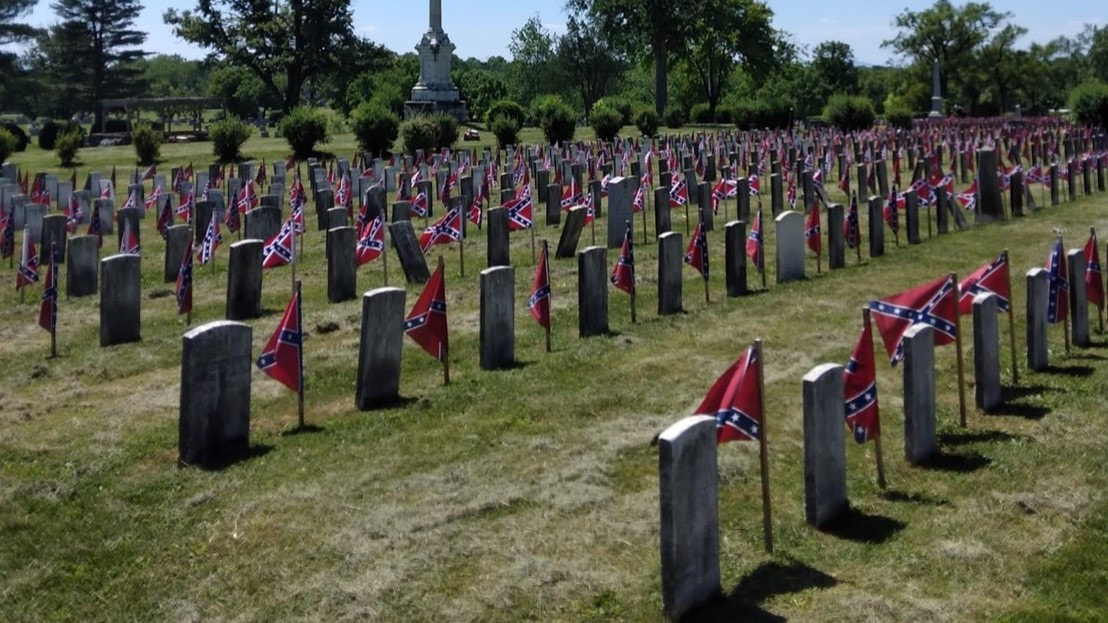|
The South has not surrendered completely to Yankee/globalist/atheist cultural domination, so one may still find respect for the dead among our people – folks stopping their vehicles on the side of the road when a funeral procession drives past; handing down old sayings, tools, letters, furniture, and other heirlooms to the newer generations; celebrating the Memorial Days of fallen Confederate soldiers, etc. This continual act of remembering and honoring the foregoing generations helps keep a people from disintegrating and dying. Mr. Mark Atkins expressed this in a recent essay when he said,
It is essential for Dixie’s survival to keep these intergenerational links strong, but more than a mental acknowledgment of that truth is necessary. It must be incarnated, lived, practiced year after year. And there is a day, the Day of Rejoicing, the second Tuesday after Easter, that pulls together these varying strands of individual and collective remembrance of the departed, and unites them in a beautiful way. The Orthodox archpriest Father Artemy Vladimirov describes some of the basic aspects for us:
He speaks further of how this celebration ties the generations together:
Fulfilling this duty of ours, recalling our own Southern mothers and fathers, statesmen, soldiers, explorers, writers, Sunday School teachers, those who died during the Reconstruction occupation, and so forth and praying for them, we will receive a very precious gift – ‘the moral rebirth of the fatherland’:
But if we fail to honor our departed Southern forefathers and mothers, we will become depraved, demonic:
Knowing and loving our Christian ancestors, as Fr Artemy says, will extinguish the fires of Revolution; but denigrating and erasing their memory will most certainly ignite and feed it. Mr Rod Dreher is rather clear on this point:
If we here in Dixie, we who still love her, will unite and celebrate this Day of Rejoicing, we may be assured that the Southern remnant will be strengthened and blessed by God. And we may also find that some of our wayward Southern brothers and sisters, those disappointed and disillusioned by Americanism, communism, BLMism, technological progress, or what have you, will rejoin us in Dixie’s gracious and welcoming Big House, for authentic Christian tradition, shining with the Light of Truth, will attract those to it who are no longer blinded by their devotion to idols.
1 Comment
Perrin Lovett
5/1/2023 08:11:59 am
Excellent, Walt! I recall the lyrics of Sabaton's "Forty to One", a ballad concerning The Battle of Wizna and the heroics of Wladyslaw Raginis and Co.: "Always remember a fallen soldier, always remember fathers and sons at war..." We are all at war in the great spiritual struggle, and actively remembering our ancestors, who may well now reside in highest company, grounds us to the present and girds us for the future.
Reply
Leave a Reply. |
AuthorWalt Garlington is a chemical engineer turned writer (and, when able, a planter). He makes his home in Louisiana and is editor of the 'Confiteri: A Southern Perspective' web site. Archives
July 2024
|

